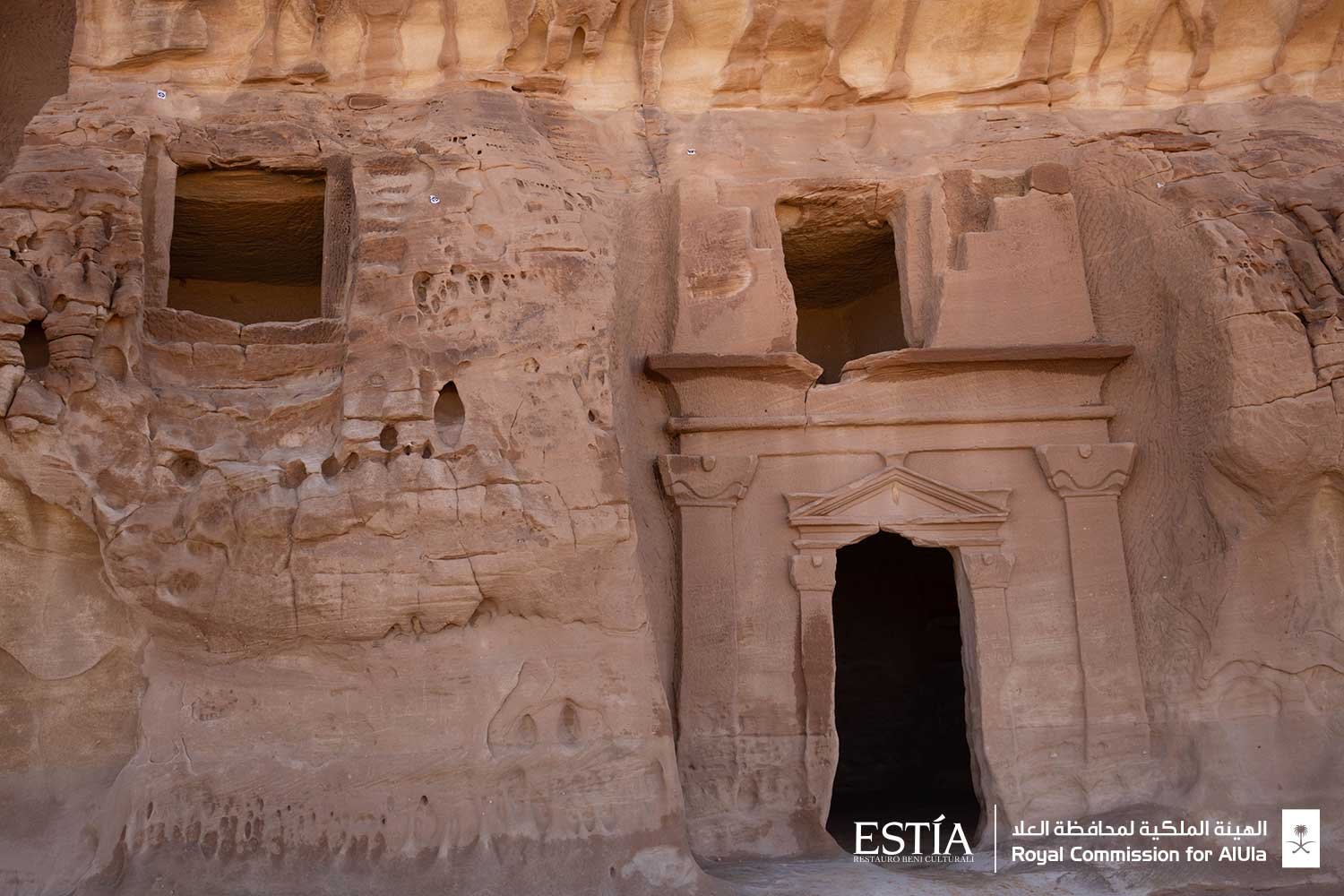
Tomb IGN26 is carved into the western slope of the main massif in the southern sector of the Jabal Banat necropolis. The tomb’s facade is protected by a natural rock canopy and features an irregular, slightly rotated development plane due to the surrounding trenches. The facade includes half-crowsteps that deviate from the traditional five-step scheme due to a non-central rectangular opening (IGN26.1) positioned at the top. The half-crowsteps crown an Egyptian entablature composed of a cornice and architrave. Below this, two angular pilasters with Nabataean Corinthian capitals and partially unfinished shafts frame the facade.
The entrance is adorned with a Greco-Roman entablature, a pediment with undecorated tympanum, and acroterial supports.
Axe, Pick, Point chisel, Flat chisel, Tooth chisel
Sandstone, Plaster (Half-crowsteps), Mortar (pit tombs of IGN26.1 and burial cells)
Les tombeaux nabatéens de Hegra vol. II Nehmé L. Académie des inscriptions et belles-lettres Paris 2015 pp.60-62
Explorations Récentes et Nouvelles Pistes de Recherche Dans l’Ancienne Hégra des Nabatéens Moderne Al-Hijr/Madâ’in Sâlih (Arabie du Nord-Ouest in Comptes rendus des séances de l’Académie des Inscriptions et Belles-Lettres Nehmé L. Diffusion de Boccard Paris 2004 pp.671-676
The interior of the tomb results from the merging of two chambers—one belonging to IGN26 and the other to IGN26.1—following later excavation. The upper chamber features three embedded pit tombs, while the lower structure, which has a square plan, contains 16 burial cells and one large pit tomb, though the latter is largely obscured by accumulated sand.
The interior is marked by signs of tool use, with the earlier structure showing close and short strokes, and the later works featuring longer, more spaced strokes. The ceiling in both chambers shows traces of axe work. The access opening retains grooves and a lowered edge for the closure system, indicating careful attention to security and preservation of the tomb’s contents.